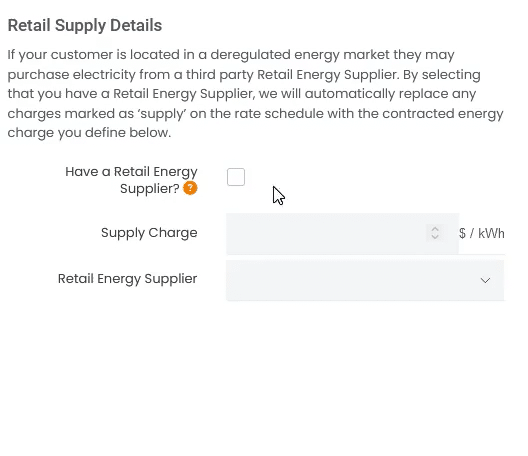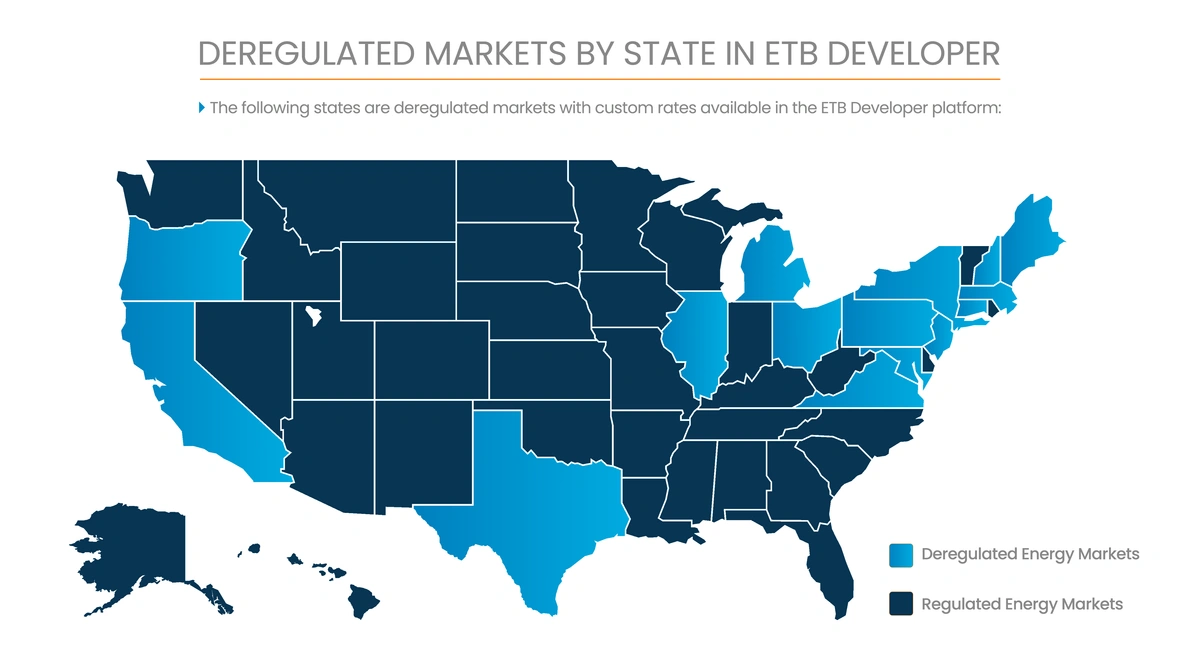Proposing Solar + Storage Projects in Deregulated Energy Markets Just Got Easier
by Lindsey Paulk on Apr 20, 2023
deregulated energy markets
solar modeling software
utility rates
The Public Utilities Regulatory Policies Act of 1978 (PURPA) was enacted to encourage competition for electric generation and electricity conservation and is credited with spurring the deregulated energy market framework. PURPA served to give customers more choices and promote renewable and energy conservation efforts. Deregulated energy markets expanded further with the passage of the Energy Policy Act of 1992 (EPAct), which introduced initiatives to increase energy efficiency and maximize the use of clean energy. The EPAct additionally created a more extensive scope of choices for utilities and initiated new standards of ratemaking. Since this time, the United States has experienced an expansion of deregulated energy markets nationwide.
Regulated vs. Deregulated Electricity Markets
A regulated electricity market consists of utilities that own, manage, and operate all aspects of generating and delivering electricity to end customers. A utility in this market will generally own transmission lines, distribution grid infrastructure, and generation assets. The utility effectively has total control from beginning to end – from generation to meter. States operating under a regulated market framework generally require utilities to adhere to electric rates instituted by state public utility commissions. Regulated markets are typically considered monopolies because of the restrictions on options for the consumer. Proponents of regulated electricity markets argue that the framework provides more reliable retail pricing and increased reliability over the long term.
A deregulated electricity market enables competition, where multiple entities can purchase and sell electricity. Retail electric providers are free to create a price and rate design for consumers. Customers get the ability to compare services, prices, and contract structures from various third-party companies.
Deregulated Markets in ETB Developer
One of the most frequently asked questions we receive from ETB Developer users pertains to how we handle deregulated markets and, more precisely, what is ETB’s ability to accommodate the price for electricity that their customer has negotiated or agreed on with a third-party supplier. We are very familiar and experienced with these scenarios, as 50% of all custom rate schedules created in Energy Toolbase incorporate a customer-specific energy charge value. Given that customer-specific supply costs are not publicly available in a deregulated market, the only option for obtaining this data is by pulling it directly from the customer’s actual bills. ETB has handled these scenarios since our company’s inception nearly nine years ago. Historically, we did this by copying/duplicating a globally-listed and published rate schedule and then entering the customer-specific supply charges into a newly created custom rate.
ETB's New 'Retail Supply Details' Function
Our newly launched deregulated markets functionality further streamlines the process of creating a customer-specific rate on ETB Developer. Within any deregulated energy market state (listed below), we now offer users the option to specify their customers ‘Retail Supply Details’ upon creating the Energy Use Profile. This new workflow enables users to swap out their customer’s supply charges efficiently and eliminates the need to copy a global rate or a previously created custom rate to make changes/edits. When utilizing this feature, the customer-specific cost values will be incorporated when constructing the Energy Use Profile.
We like to remind our users that some supplier contracts are rather tricky, where users might be billed capacity-related charges or loss-related components, which might still be best to accommodate inside an actual rate. The Utility Rates team is happy to provide guidance if the billing you are working with is complex.
Deregulated Markets by State
The following states are deregulated markets where our new self-serve feature, with the ‘Retail Details Supply’ function, is live on the platform today.
-
California
-
Connecticut
-
Delaware
-
Illinois
-
Maine
-
Maryland
-
Massachusetts
-
Michigan
-
New Hampshire
-
New Jersey
-
New York
-
Ohio
-
Oregon
-
Pennsylvania
-
Rhode Island
-
Texas
-
Virginia
Pre-Proposal Service
For users that would prefer that our rates and data team create, validate, and QA a deregulated market rate on their behalf, we offer a service whereby our team of domain experts will do that on your behalf. We launched our Pre-Proposal Service earlier this year and have been getting strong customer reviews and feedback on this service. Users can learn more here:Introducing the new EnergyToolbasePre-Proposal Service.


